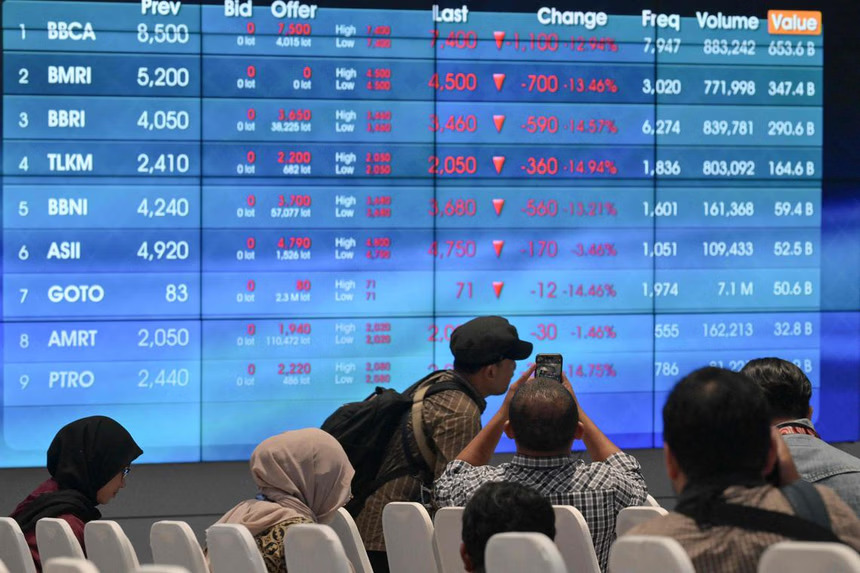Tariff discussions held between Asean senior officials and US Treasury rep

(Photo credit: AFP)
Source: The Straits Times
Discussions on tariffs were held between a representative from the United States Department of the Treasury (UST) and senior officials of Asean member states on April 7.
The UST was represented by its Deputy Assistant Secretary for Asia Robert Kaproth.
The discussions took place at the US Treasury-Asean Finance and Central Bank Deputies’ Meeting (AFCDM).
“The UST shared its policy outlook and also discussed the effects of the new tariffs announcement to Asean,” said Malaysia’s Finance Ministry in a post on X.
The ministry said the meeting provided Asean finance and central bank deputies an avenue to directly engage with the UST in a closed-door setting.
Although not part of the main agenda, the US tariffs appeared to be among the key topic of discussion on the first day of the 12th Asean Finance Ministers’ and Central Bank Governors’ Meeting, which began on April 7, following US President Donald Trump’s move to impose reciprocal tariffs less than a week before the Asean finance ministers’ and senior officials’ gathering.
Chaired by Malaysia, the gathering started with the Asean finance deputies’ meeting, followed by the Asean central bank deputies’ meeting and the US Treasury-Asean Finance and Central Bank Deputies’ Meeting luncheon.
The day ended with a closed-door meeting of the Asean finance and central bank deputies and the launch of the Malaysia Open House Exhibition at Asean 2025.
Mr Trump announced retaliatory tariffs on April 3.
In an immediate reaction, Malaysia said it would not be considering retaliatory tariffs to the US following the recent 10 per cent tariff increase and reciprocal tariff on Malaysian exports to the country.
The 24 per cent tariff on goods from Malaysia entering the US will begin on April 9 as Mr Trump announced new import duties against its trading partners.
This is part of a broad trade policy targeting countries which have large trade deficits with the US. However, it does not cover all Malaysian goods exported to the US.
